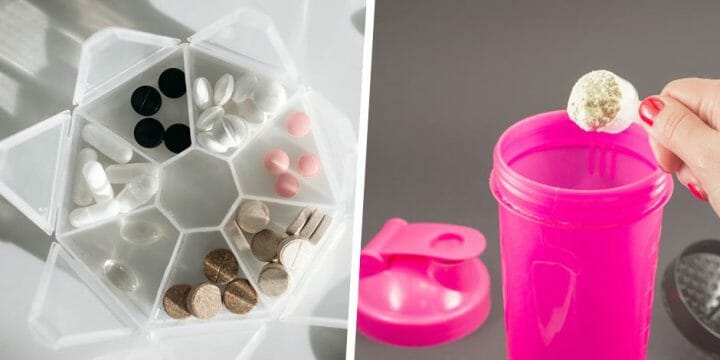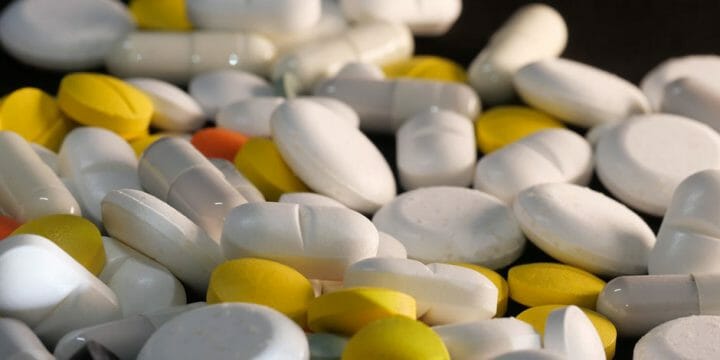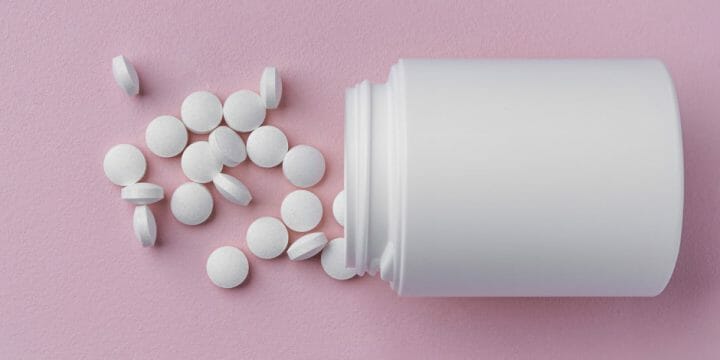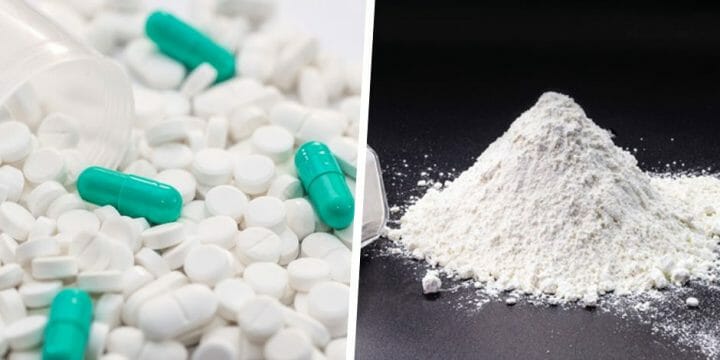Creatine and creatinine, despite their similar names, are distinct substances produced at a relatively constant rate in our bodies.
Drawing from my decade-long experience in the fitness industry, I advise high-quality creatine supplements for performance optimization. Given my in-depth research on its regular use, I also advise clients to check their creatinine levels to ensure safe usage.
Continue reading to understand the basics and differences between creatine and creatinine, enabling worry-free supplement use on your fitness journey.
Quick Summary
- Creatine and creatinine are distinct substances; creatine is an amino acid used for energy and muscle activity, while creatinine is a waste product of creatine breakdown.
- Creatine is commonly used to enhance muscle performance and is beneficial for workouts, while creatinine levels are measured to assess kidney function.
- The liver, kidneys, and pancreas convert 1.5 to 2 percent of the body's creatine store daily, transporting it through the bloodstream for use in body parts with high energy demands.
- For me, supplementing with creatine is safe within recommended doses and can accelerate muscle building when combined with a nutritious diet and regular workouts.
What You Should Know About Creatine and Creatinine
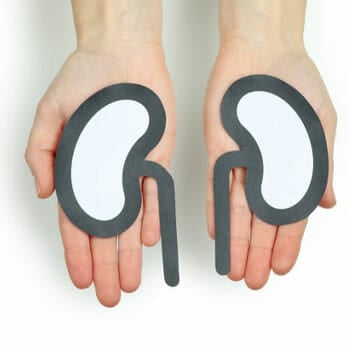
Creatine, primarily synthesized in the liver, serves a crucial role in providing energy and supporting muscle activity when transported to the muscles.
The National Institute of Health indicates that, as an amino acid, creatine offers significant benefits to the body, whereas creatinine is a byproduct resulting from the breakdown of creatine in muscle cells [1].
Both creatine and creatinine are detectable in blood and urine, providing valuable insights into the overall health of the kidneys.
What is Creatine?

Creatine is a natural organic acid that plays a crucial role in providing energy for high-intensity workouts and muscle contractions by converting into creatine phosphate and phosphocreatine in skeletal muscles.
Research from ScienceDirect indicates that creatine is stored in skeletal muscles; these compounds serve as a vital energy source.
Furthermore, creatine phosphate, a common compound in vertebrates, is essential for synthesizing adenosine triphosphate (ATP), which fuels muscle contractions during intense exercise [2].
The Role of Creatine
Creatine can be a valuable companion during your workouts, providing fuel for weightlifting sessions or high-intensity performances.
"Between 1.5 and 2 percent of the body's creatine store is converted for use each day by the liver, the kidneys, and the pancreas. It is transported through the bloodstream and used by parts of the body that have high energy demands'',
-Debra Rose Willson, Ph.D., healthline.com
P.S. If you're a vegan, these creatine brands are right for you.
What is Creatinine?

Creatinine is a byproduct of muscle breakdown and protein metabolism, and is vital for assessing kidney health via blood tests.
Based on the data from the National Kidney Foundation, the production of creatinine can vary based on factors such as creatine intake, muscle mass, body mass index, and diet [3].
Notably, creatinine will likely be higher in muscular people and in those who consume foods that contain high amounts of proteins.
The Role of Creatinine
Creatinine helps assess kidney health through blood tests, as the kidneys filter and release most creatinine into urine.
What Is a Creatinine Test?

A creatinine test is a medical blood test that measures blood creatinine levels to evaluate kidney function.
According to the Mayo Clinic, serum creatinine determines the estimated glomerular filtration rate (eGFR), offering a clearer picture of kidney function.
Elevated serum creatinine may indicate chronic kidney disease, acute nephritis, or medication use, like cyclosporine [4].
The Relationship Between Creatine Supplements and Renal Function

While past cases hinted at a creatine-kidney link in those with kidney disorders, the International Society of Sports Nutrition suggests that creatine is generally safe for healthy individuals [5].
Athletes and bodybuilders praise creatine for its efficiency and benefits, with body weight gain being the only confirmed side effect.
Contrary to belief, creatine doesn't cause dehydration or muscle cramping.
‘’In fact, evidence suggests that creatine is one of the world's most tested supplements and has an outstanding safety profile.’’
- Rudy Mawer, MSc, CISSN
For unusual muscle issues, your doctor may suggest a creatine kinase (CK) test—an enzyme found in muscles, the brain, and the heart.
Elevated CK levels may indicate heart issues or conditions causing muscle damage. If persistent muscle soreness occurs after exercise, consult a physician to assess CK stability.
Does Creatine Affect the Level of Creatinine?

Creatine use can indeed influence the level of creatinine in the body, especially when taking creatine supplements, but it doesn't necessarily indicate kidney damage.
The type of creatine supplement matters; for instance, one study from the National Health Institute showed that creatine monohydrate use led to a slight increase in serum creatinine [6].
Evidence suggests that creatine supplements, particularly when paired with a high-protein diet, may elevate serum creatinine. However, this doesn't necessarily indicate a risk to renal function.
To assess if these levels imply kidney damage, different blood tests may be needed. It's recommended to avoid a protein-rich meal before testing.
It's worth noting that individuals with more muscle mass may naturally have higher creatinine levels, even without using supplements.
FAQs
Is Creatine Safe To Take Every Day?
Creatine is safe to take every day, particularly for healthy individuals, as long as it adheres to the recommended dosage. Multiple studies indicate no significantly detrimental side effects, and athletes who used daily creatine supplements for extended periods observed positive health benefits.
Does Creatine Cause Weight Gain?
Creatine use may cause weight gain, but it is attributed to increased muscle growth, not increased body fat. Several studies suggest this weight gain can have benefits for older adults, individuals with obesity, and those with certain diseases.
References:
- https://www.ncbi.nlm.nih.gov/pmc/articles/PMC4958791/
- https://www.sciencedirect.com/topics/nursing-and-health-professions/creatine-phosphate
- https://www.kidney.org/atoz/content/serum-blood-creatinine
- https://www.mayoclinic.org/tests-procedures/creatinine-test/about/pac-20384646
- https://www.ncbi.nlm.nih.gov/pmc/articles/PMC5469049/
- https://www.ncbi.nlm.nih.gov/pmc/articles/PMC4170516/
About The Author
You May Also Like

